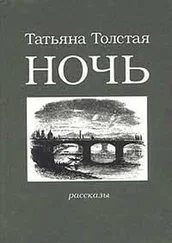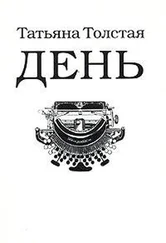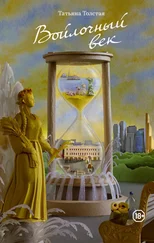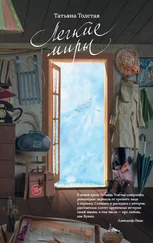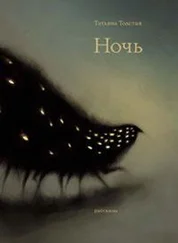(Years later, when the Soviet regime fell apart and was succeeded by democratic times, when working for the common good was considered a laughable and contemptible anachronism, the courtyards of Saint Petersburg were choked with garbage, and no one came out to clean them. That is, no one except two people: the janitress and Mother. Mother was by then close to eighty. She’d put on canvas gloves, secure her hair with a headscarf, and set out to pick up the bottles peeking through the melting snow, to sweep up the frozen dog poop, to gather up paper, plastic bags, and discarded syringes. On TV, Sobchak was barking about democratic principles and we all watched in rapture; but Mother would walk past us, in silence. “Mama, c’mon, sit down, relax!” “Garbage doesn’t pick itself up. We want to live with a clean courtyard, don’t we?”)
§
Besides that Lily of the Valley cow, there was the Eimans’ cow, but we were too lazy for the long walk to their place—it was about a quarter of a mile up a road overgrown with thick grass. The house belonged to a large extended family and one of the inhabitants was Vera Eiman, a mysterious woman, enveloped in sadness, who knew how to get rid of warts using a quarter of an apple: you secured one quarter to the wart and then buried the other three while saying these magic words: “You three, riding on a mare! Take this wart away from here!” A week later the wart would be gone without a trace—the three horsemen abided. At some point before 1914, this Vera was a personal dresser for the ballerina Anna Pavlova; she used to enrobe and disrobe this distinguished woman, clean her swan tutus reverently, travel the globe with her. She’d bring out autographed photo albums covered in velvet to show us: “For dearest Vera…” You’re standing there, with a three-liter milk can tugging on your arm—“All right, can I please go now?”—but Vera is still flipping through the formerly cream-colored pages with trembling hands. “You see? And here again: ‘To dearest Vera…’” Anna Pavlova decided to stay in England, and Vera came back to Russia to get married.
And get married she did, or rather, thought she did, but the consummation never occurred, les cris de passion never rang out in the dark vaults of Vera’s bridal chamber: her husband would gently kiss her on the forehead and leave the room, closing the door behind him. Vera was an innocent maiden but nonetheless possessed some vague notions about the mechanics of matrimony; days followed days and nights followed nights.
Finally, tired of waiting for the caresses promised her at the altar, unable to understand what all this meant, and not knowing where to turn, she got up from her cold marriage bed and knocked on her mother-in-law’s door for advice. Oh, the horror; oh, the depths of despair: the dim light of a kerosene lamp, shadows, lace, and scattered bedsheets. Yes, her husband was indulging in passionate lovemaking with his own mother in the very same bed where she’d birthed him, and where, as it turned out, after making him her lover for thirty years she still wouldn’t let go.
Vera hanged herself. But her husband rescued her from the noose, brought her back to life, and then promptly hanged himself. No one tried to resuscitate him, it should be noted.
She didn’t remarry, and she grew barren among the velvet-covered albums full of someone else’s exhilarating beauty. They say that after what had happened, men inspired only horror in her. I don’t know—when handing us a full three-liter milk can, having carefully placed it inside a checkered bag, did she sometimes think about what could have been, that it was possible to forget, to overcome, to fall in love again, to have children, to nurse them with her own milk, her own body whose earthly time had been so uselessly spent on the side of life’s road? Or did she completely dissolve into the swanlike whiteness of the past, into the dreamy sublime sadness, into those pointe shoes, ribbons, and flounces—the flounces and lace that she used to bleach with her very own hands, used to press with a sad iron?
Anna Pavlova’s name has been immortalized by one KLM airplane, by an Australian dessert, and even, God help me, by some haptophyte algae; it still resounds, and all this is well and good; yet it might still please her—now on the other side of that blue glass—to know that even here, in the shade of the White House, amid the pines in the middle of nowhere, Vera, the eternal maiden, spent her long, sad life loving her, and that after each evening’s milking she’d smooth out Anna’s silky photographs the way she used to smooth out her tutus.
§
The house was overrun with children, and Klavsevna was hired to take the little ones—Olya and Ivan—for walks, so they wouldn’t be in the way. You’d amble somewhere, not doing anything in particular, and here they are—situated by a pile of sand, next to a fallen pine tree, Klavsevna sitting down on the tree’s roots, her red jacket visible from afar, while Olya and Ivan are making mud pies or playing with toy trucks: beep beep. I don’t know exactly what she would talk to them about or how she entertained them, but at some point an imaginary character by the name of Fedor Kuzmitch entered the picture.
He, as I understand it, bore no relation to any historical figure. He just materialized out of nowhere and there he was. Fedor Kuzmitch was a role model: he always finished his supper, he never licked his plate even after raspberry jam, he never spat cherry pits out onto the table, but only onto his spoon, then carefully placing them on the edge of his plate.
Before entering the house, Fedor Kuzmitch always shook the sand off his sandals, as well as the pine needles from his clothes: he was considerate of Mother’s having to sweep the floor. Fedor Kuzmitch didn’t dangle his feet and kick under the table, didn’t pick his nose, didn’t draw on the tablecloth with colored pencils. And he never—NEVER!—brewed tea in the buckets of fresh water just brought back from the lake, as Olya used to do; never stomped his feet over the blueberry pies covered with tea towels on the table as, again, Olya did. And he never mixed salt and sugar—quickly and deftly—while looking with innocent and impudent eyes when caught in the act, Miss Olya! Sure, you’re five years old, and yes, you’re the most uncontrollable creature around for miles—button nose, corkscrew curls—but Fedor Kuzmitch, dignified and exemplary, does not approve of such shenanigans.
I’d overhear bits and pieces of this epos: Klavsevna gently rustling, the rug rats possibly absorbing some of the lessons.
§
Now that Olya is long gone, and we have lived out most of our lives and will ourselves soon be going beyond the blue glass, I called my brother Ivan to ask: What was all that about? And who was this Fedor Kuzmitch? Where did he come from and where did he go? But Ivan doesn’t remember. Fedor Kuzmitch just was. So I guess, once again, I’m the sole witness of the existence of these titans and their dilapidated worlds.
Remember the palace of giants,
The silvery fish in the water,
The sycamore trees—goliaths,
The fortress of rock and mortar?
Remember the golden stallion,
Playfully rearing mid-canter,
His white shabraque and medallions
Adorned in an exquisite manner?
Remember, the heavens parted,
Together we found a ledge;
The stars, in the skies uncharted,
Like grapes dropping down unfetched.
I was twelve years old when I picked up a thin old book from the shelf and read these verses by Nikolai Gumilev. It seemed like they were speaking to me. When a line in a book says “Remember?” then it seems to me as if I do remember. Yes, I think I remember. Something rings a bell. I don’t really know what a “shabraque” is and I’m still too lazy to look it up, that’s more up your alley, Mister Gumilev, but “the skies uncharted”—let that be mine. I read this and dutifully remembered. Immediately the palace of giants appeared to me as the White House: the white columns, the dark-green tiles, the smooth blue-gray balusters disappearing high up the stairs, all seemed colossal in my childhood; and the loft window rested directly against the crown of the pine tree, the pine cones knocking against it in the storm—you could just reach up and touch the ledge where the heavens parted.
Читать дальше


